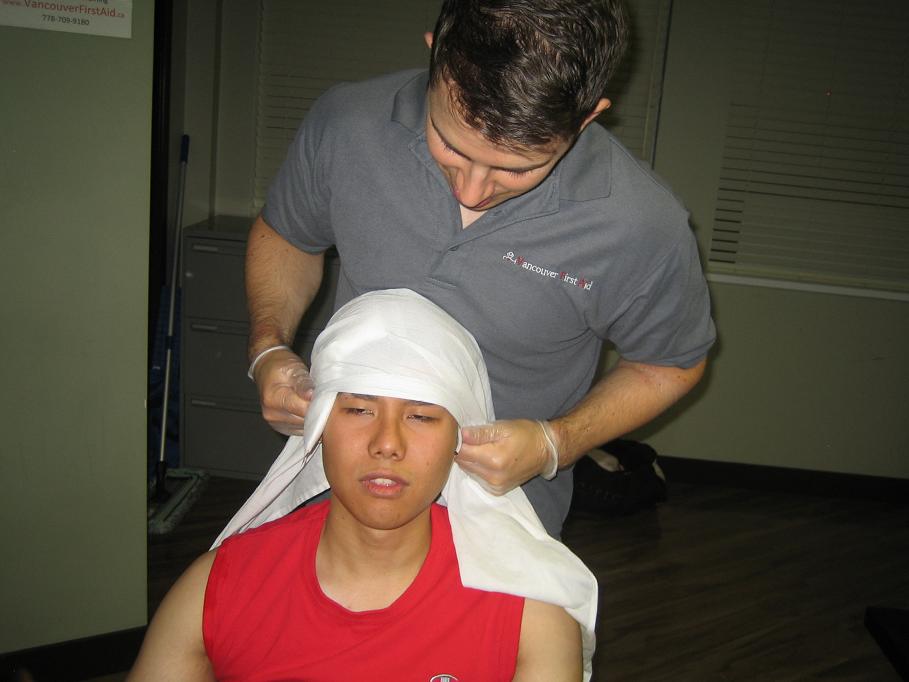A severe head injury means that you should seek medical attention immediately, as there is a high risk of brain injury. Some of the signs of a serious head injury include:
- Either short term or long term unconsciousness
- Having fits or seizures
- Trouble staying awake
- Trouble talking
- Having double vision, hearing loss or other problems with your senses
- Vomiting repeatedly
- Having blood or clear liquid ooze from the ears or nose
- Having memory loss
If you have any of these signs, you need to get to the nearest medical facility as soon as possible, or call an ambulance to arrange for a way there.
Diagnosis
In order to access head injuries, professionals utilize the Glasgow Coma Scale (GCS). The scale goes from 3 to 15 depending upon the seriousness of the injury. This is based on the symptoms that you show and the damage that has been done to the brain. 3 is the most severe, while 15 means less severe.
For those who score between 9 and 12, they have a moderate head injury. Severe is classified as 8 or lower. Those who score a high GCS score, may later downgrade the seriousness after they have been re-evaluated.
In many situations, further tests are required in order to access the damage. For example, utilizing computerized tomography scans, otherwise known as a CT scan.
Treating a severe head injury

A severe head injury does require that you get treatment at the hospital, there are no at home treatments that are going to help. Treatment that you may receive include:
- Continuous monitoring for changes
- Tests that are going to look for further damage
- Treating other injuries that may have been sustained
- In severe cases, there may need to be brain surgery or breathing support
Complications
There are many complications that can arise when a person suffers a severe brain injury. These complications can include:
- Pressure in the brain due to bleeding, blood clots or build-up of fluid that can lead to temporary or permanent brain damage
- A skull fracture can result in an infection
- Post-concussion syndrome which means you have symptoms that remain after a concussion
- Impaired consciousness
Statistically, one of out every 2000 people who go to the hospital for a severe brain injury die from the injury.
Prevention
Head injury is something that cannot be predicted or avoided, but you can do things to minimize the risk of having severe head injuries. These aspects include:
- Reduce the hazards in your home that could cause a slip and fall
- Childproof your home
- When working, playing sports or the like, utilize the proper safety equipment such as wearing a helmet while biking, a hard hat while working in construction and the like
Related Video
FACT CHECK
https://www.nhs.uk/conditions/severe-head-injury/
http://www.traumaticbraininjury.com/symptoms-of-tbi/severe-tbi-symptoms/
